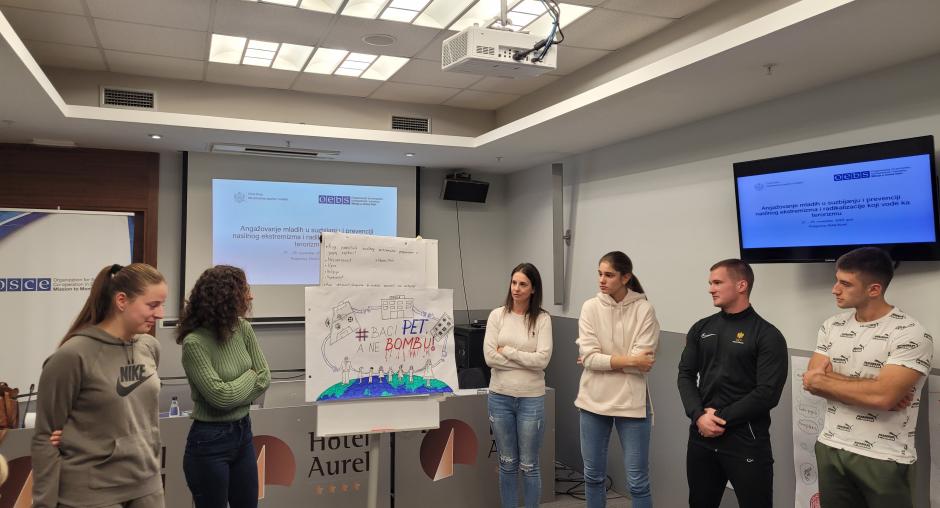OSCE Mission continues to engage youth in countering violent extremism and radicalization

On 27 and 28 November, the OSCE Mission to Montenegro, together with the Ministry of Sports and Youth, gathered 19 young athletes – nine boys and ten girls from eight sports disciplines at the workshop on engaging youth in countering violent extremism and radicalization.
Opening the workshop, Bernd Burwitz, Mission’s Democratization Programme Manager, emphasized that the OSCE strongly believes that every young person can make a change. “As successful athletes and leaders in your disciplines, you meet youth from different backgrounds and create strong connections through sports, focusing on similarities. This experience makes you role models and gives you an opportunity to gather peers around topics besides sports, such as tolerance and mutual understanding, and that is why we recognized you as a target group for this workshop,” said Burwitz.
Martin Lulgjuraj, Director of the Directorate for Youth in the Ministry of Sports and Youth, pointed out that violent extremism needs to be fought on local, national and regional level, and that prevention is a key solution to this problem. “Cooperation among young athletes in Montenegro is crucial in this regard, as their power to influence peers can foster diversity and prevent violent behaviors,” said Lulgjuraj.
During the second day of the workshop, participants developed small projects on how to recognize and address radicalism and violent extremism that leads to terrorism within their communities and recommended the need for counselling and to develop strategies to engage youth in sports, using schools as platforms to share new approaches, and organizing exchanges between youth in Montenegro in order to tackle stereotypes, intolerance and inequality.
One of the participants, Rajmond Gjonaj, an athlete from the Students Sports Association, stated that the workshop has helped him understand the difference between radicalism, violent extremism and terrorism and plans to use this information to recognize factors in his community that may contribute to more radicalized attitudes that can grow into the violent extremism.
